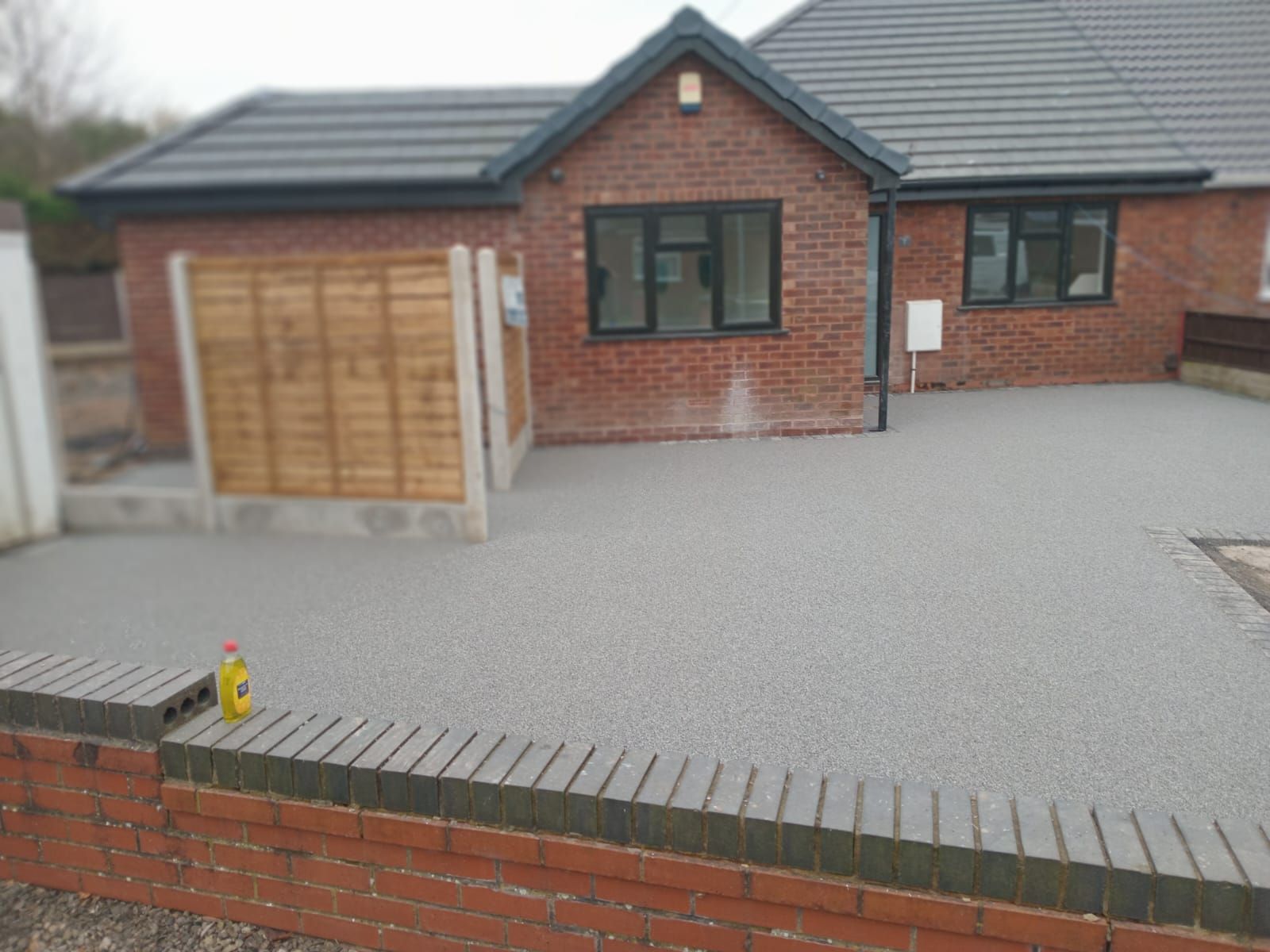How to Maintain a Resin Bound Driveway in Winter
How to Maintain a Resin Bound Driveway in Winter: A Complete Guide
Winter can be challenging for any driveway, especially in areas prone to frost, snow, and ice. If you have a resin-bound driveway, you’re already benefiting from its durable and low-maintenance properties. However, taking a few extra steps during the colder months can ensure it remains in excellent condition and lasts for years to come.
In this guide, we’ll explore everything you need to know about maintaining a resin-bound driveway in winter, including practical tips, precautions, and frequently asked questions. By following these guidelines, you’ll keep your driveway looking pristine and functional, even in harsh weather conditions.
Introduction: Why Winter Maintenance is Essential
Resin-bound driveways are an increasingly popular choice for homeowners due to their porous nature, sleek appearance, and ability to withstand heavy use. However, winter introduces unique challenges such as freezing temperatures, snow, and ice that can affect even the most robust surfaces.
Proper winter maintenance ensures that your resin-bound driveway remains safe to use, retains its aesthetic appeal, and avoids unnecessary damage. Neglecting winter care could lead to issues such as surface cracking, discolouration, or water pooling, reducing the lifespan of your investment.
How Winter Affects Resin Bound Driveways
Before diving into maintenance tips, it’s important to understand how winter weather impacts resin-bound driveways.
Freezing and Thawing Cycles
Water naturally penetrates the porous surface of resin-bound driveways. During winter, freezing and thawing cycles can cause expansion and contraction, which may weaken the surface if not properly managed.
Snow and Ice Accumulation
While the smooth surface of resin driveways makes snow removal easier, ice can pose a slipping hazard and may lead to surface damage if improper tools are used.
De-Icing Chemicals
Many de-icing products contain harsh chemicals that can degrade resin or discolour the surface if overused.
Understanding these potential challenges can help you take proactive steps to preserve the integrity of your driveway during winter.
Winter Maintenance Tips for Resin Bound Driveways
Regular Cleaning to Prevent Build-Up
Maintaining a clean driveway is crucial year-round, but it’s especially important in winter. Fallen leaves, dirt, and debris can trap moisture, increasing the risk of algae or moss growth. These can make the surface slippery and compromise its appearance.
Use a broom or leaf blower: Regularly clear away debris to prevent it from accumulating.
Rinse with water: On mild days, a quick rinse can wash away any dirt without the need for high-pressure washing.
Remove Snow Safely
Snow can create a slippery hazard if not promptly removed. However, it’s vital to use the right tools and techniques to avoid damaging your resin-bound surface.
- Opt for a plastic shovel: Avoid using metal shovels, as they can scratch or chip the surface.
- Shovel gently: Clear snow in layers rather than digging deep into the driveway.
- Use a soft brush: For light snowfalls, a soft-bristled broom works well to sweep snow away without causing abrasion.
Use Resin-Safe De-Icing Products
When ice forms, de-icing is often necessary to maintain safety. However, not all de-icing products are safe for resin-bound surfaces.
- Avoid harsh chemicals: Many commercial de-icers contain salts or chlorides that can damage resin or harm surrounding vegetation.
- Use white rock salt: This is a safer alternative that effectively melts ice without corroding the surface.
- Spread sparingly: Overusing even resin-safe products can leave a residue that dulls the appearance of your driveway.
Prevent Ice Formation
Taking proactive steps to prevent ice from forming can save you the hassle of dealing with it later.
- Apply a grit layer: A thin layer of grit or sand before a freeze can provide traction and prevent ice from bonding to the surface.
- Maintain good drainage: Water should not pool on your driveway, as standing water is more likely to freeze.
Inspect for Damage Regularly
Winter weather can cause minor wear and tear to worsen if left unchecked. Regular inspections allow you to address any issues before they escalate.
- Check for cracks or chips: These can occur if the base layer of your driveway isn’t stable or if heavy tools have been used improperly.
- Look for pooling water: Standing water indicates drainage issues that should be resolved promptly.
Protect the Surface from Heavy Impact
Heavy objects, such as snowblowers or vehicles with chains, can damage the surface during winter.
- Avoid dragging tools: Always lift tools rather than dragging them across the surface.
- Monitor vehicle use: Ensure that snow chains or studded tyres don’t come into direct contact with the resin.
Frequently Asked Questions About Winter Care for Resin Bound Driveways
Can I use a pressure washer in winter?
Yes, but it’s recommended only on mild days when the temperature is above freezing. Use a pressure washer with a fan nozzle to avoid damaging the surface, and keep the pressure below 150 bar.
What should I do if my driveway develops cracks during winter?
Contact a professional immediately. Cracks can worsen with freezing and thawing cycles, so prompt repair is essential to maintain the driveway’s integrity.
Are resin bound driveways slippery in winter?
Resin driveways are naturally slip resistant, but ice can still form on the surface. Regular maintenance and the use of grit or sand can help improve traction.
Can I use chemical de-icers on my resin driveway?
Avoid harsh chemical de-icers. Opt for resin-safe alternatives like white rock salt or consider natural methods, such as applying sand for traction.
How do I prevent algae or moss growth in winter?
Keep your driveway clean and dry by regularly sweeping away debris and rinsing it with water on mild days. A well-maintained surface is less likely to harbor algae and moss.
How long do resin bound driveways last with proper maintenance?
A well-maintained resin-bound driveway can last up to 25 years, even in areas with harsh winters.
Conclusion: Keep Your Resin Bound Driveway Winter Ready
Maintaining a resin-bound driveway in winter doesn’t have to be a daunting task. By following these simple tips—regular cleaning, safe snow removal, and using appropriate de-icing products—you can preserve the beauty and functionality of your driveway even in freezing conditions. Regular inspections and preventative measures will also go a long way in extending its lifespan and saving you from costly repairs.
Investing time in winter care ensures that your resin-bound driveway remains a standout feature of your home, offering both style and practicality throughout the seasons.
For further information, Click here to visit our website or call Essex Resin Driveways on 01245-968085.
Click here to complete our contact form and see how we can help you with your Driveway requirements.
You might also like
Book a Service Today
We will get back to you as soon as possible
Please try again later
Location
Call
All Rights Reserved | Essex Resin Driveway | Powered by Snapps



